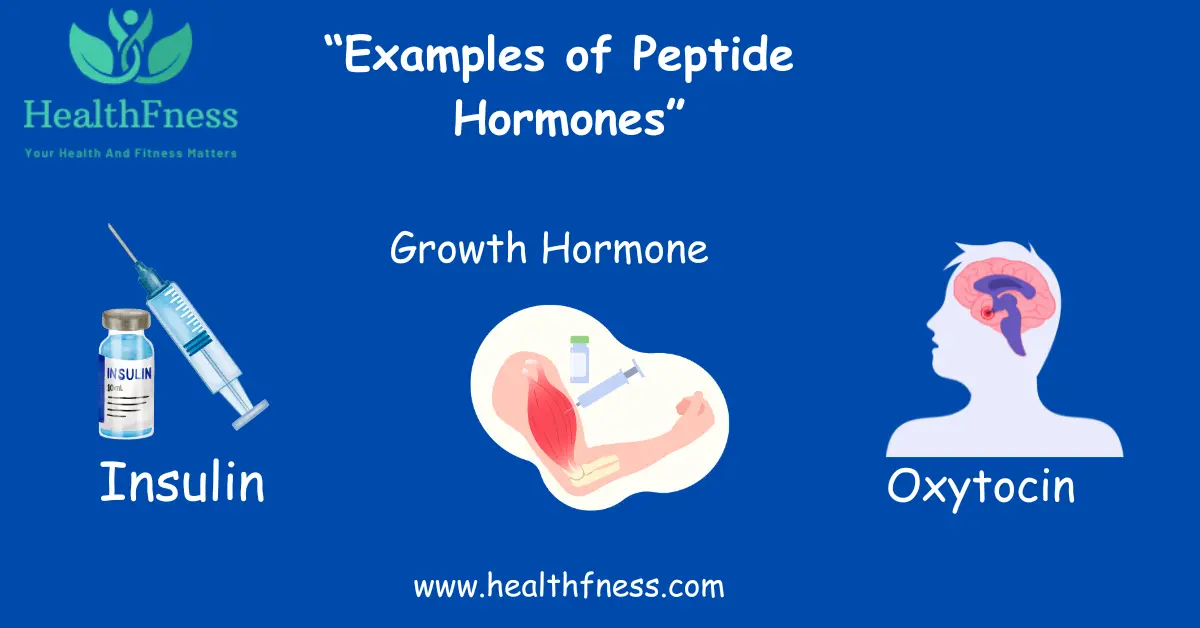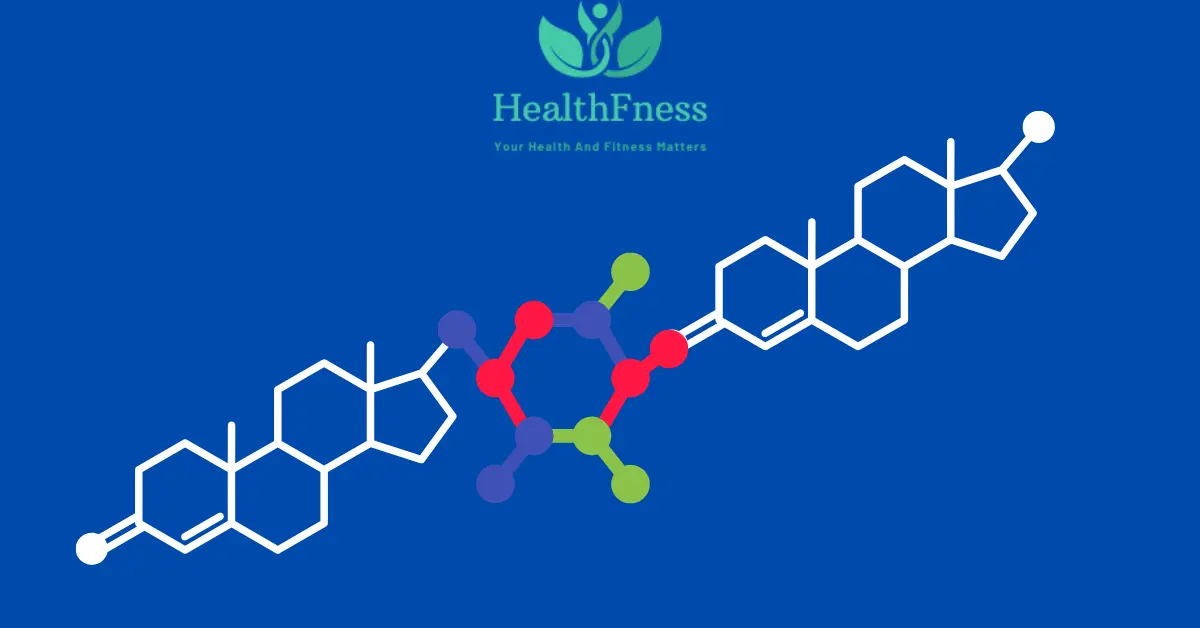Peptide hormones are a kind of external chemical signal that is produced by the gland that is the pituitary gland, thyroid gland, pancreas, and also the adipose tissues in the body among other tissues and organs.
The hormones are excreted to help in the regulation of a number of bodily functions like the thyroid which regulates the body temperature and also the pancreas which regulates the level of glucose in the blood.
Importance of Peptide Hormones In The Body
The usefulness of peptide hormones in the body cannot be overemphasized because the body has to rely on them for its normal function. They have roles in activities like body growth and development, metabolism, reproduction, and organ function.
Examples of Peptide Hormones
Peptide Hormones are such hormones are released by the endocrine to communicate with the cells and organs. When a peptide hormone is released to enter into the bloodstream, they are carried to its target cells where they act by being bound to the surface receptors of the cell. Each of the peptide hormones has a variety of actions taking place in the body.

Insulin
Insulin is a peptide hormone generated in the pancreas by beta cells. Its principal role is to control glucose metabolism by increasing glucose absorption from the blood into cells all over the body. Insulin production and signaling dysfunction can result in a variety of metabolic diseases, including type 1 and type 2 diabetes🫠.
Growth Hormone
Growth Hormone (GH) is a peptide hormone generated by the pituitary gland. It is also known as somatotropin. It regulates children’s growth and development, as well as adults’ metabolism and body composition. GH works by attaching to receptors on cells all over the body, stimulating protein synthesis and fat metabolism🤔.
Oxytocin
Oxytocin is a peptide hormone produced by the hypothalamus and released by the pituitary gland. It is involved in a variety of physiological processes, including social bonding, reproduction, and milk ejection during lactation.
Here is a study on Peptide Hormones by Wiley Online Library they explore the selective review of these hormones’ physiology and potential application for pest control.
Structure and Function of P-Hormones
These are short peptide-like amino acids that are secreted by specific cells that are located in various organs; for instance; the pancreas, pituitary, and hypothalamus.
The Structure of Peptide Hormones
Steroid hormones, for instance, are simpler in structure compared to the peptide hormones. This hormones are polypeptides that can have just a few or hundreds of components of amino acids linked in a chain. Amino acid forms the backbone of the peptide hormone which gives the hormone its specificity and selectivity to bind to the receptors.
The Function of Peptide Hormones
All the hormones as a regulatory mechanism function as signaling agents that bind to protein receptors on the surface of cells. Once peptide hormones bind to their respective receptors, they trigger a series of intracellular events within the target cells which ultimately lead to the expression of several cellular processes including transcriptional regulation of genes, activation of specific enzymes, and regulation of ion channels.
Binding of Peptide Hormones to Receptors
l binding to receptors is a multistep event. Hydrophobic, electrostatic, and hydrogen bonding are types of interactions used by peptide hormones to bind to receptors.
Regulation of P-Hormones
These hormones are a class of signaling molecules produced and secreted by endocrine glands that play an important function in regulating a variety of physiological processes in the body. Complex processes ensure that the production and secretion of these hormones are properly controlled in response to varied stimuli🫡.
Mechanisms that regulate peptide hormone
A complex interplay of elements, including genetic, environmental, and physiological cues, regulates peptide hormone production and secretion. Peptide hormone regulation entails numerous processes, including gene transcription, translation, post-translational modification, and secretion.
Feedback loops involving peptide hormones
Peptide hormones regulate various physiological processes by binding to specific receptors placed on target cells. Feedback loops involving these hormones and their receptors play an important role in hormone synthesis and secretion regulation.
Importance of proper regulation of peptide hormones
The proper control of these hormones is essential to preserving homeostasis and preventing disease onset. Peptide hormone dysregulation can result in a variety of illnesses, including endocrine disorders, metabolic disorders, and cancer.
Disorders Associated with Pe-Hormones
Some common disorders associated with peptide hormone dysregulation include:
Diabetes
Diabetes is a disorder where an insufficient amount of insulin occurs for regulating blood glucose.
Acromegaly
Acromegaly is also the interrelated outcome of high growth hormone levels in the environment that lead to the development of abnormally enlarged bones and cardiac muscles in the face and hands and feet.
Thyroid Disorders
Other illnesses are hypothyroidism and hyperthyroidism conditions which arise from abnormalities in the peptide hormone synthesis by the thyroid. These conditions can lead to a number of other symptoms including fatigue, weight gain or weight loss, changes in heart rate, fluid retention, and in rare cases, an irregular heartbeat.
Reproductive Hormone Disorders
Disproportionate secretion or action of peptides controlling the reproductive organs leads to disorders affecting reproduction like polycystic ovarian syndrome (PCOS) and hypogonadism. Such conditions can lead to cases of infertility, irregular menstruation, and so on.
How Are Peptide Hormones Used In Medicine?
Peptide hormones are broadly applied in medicine to treat a wide range of ailments. They are used as replacement therapy for those who are deficient in a certain hormone. Those with diabetes, for example, may utilize insulin, a peptide hormone, to replace the insulin that their bodies are unable to manufacture.
FAQS
What is the main function of peptide hormones?
Peptide hormones' primary role is to convey signals and relay messages between cells, tissues, and organs in the body. Endocrine glands generate and release this hormone.
Which hormone is a peptide hormone?
There are many hormones that are classified as peptide hormones. Some examples of this hormones include insulin, growth hormone, follicle-stimulating hormone, luteinizing hormone, oxytocin, vasopressin, glucagon, and parathyroid hormone.
Is insulin a peptide?
Is dopamine a peptide hormone?
Insulin is, in fact, a peptide hormone. The pancreas produces and secretes it in reaction to rising blood glucose levels, and it plays an important function in controlling glucose metabolism in the body.
Conclusion
Peptide hormones serve an important part in the regulation of many physiological processes in our bodies. Many endocrine glands and other specialized cells produce these signaling molecules, which act on target cells throughout the body to evoke specific responses.

Dr. Mark Jenkins, MD - General Physician (California, USA)
Dr. Mark Jenkins is a board-certified general physician based in the United States, specializing in preventive medicine, nutrition, and lifestyle health. With years of clinical experience in primary care, he is dedicated to helping patients and readers alike make informed, science-based decisions about their well-being.
As a trusted medical reviewer and contributor to Healthfness.com, Dr. Jenkins ensures that all health content meets the highest standards of accuracy, safety, and evidence-based medicine. His expertise bridges modern medical science with practical, everyday wellness strategies, making complex topics approachable for all audiences.
Outside the clinic, Dr. Jenkins is passionate about living the healthy lifestyle he teaches. He enjoys hiking with his dog, experimenting with vegetarian cooking, and exploring the latest health research. He believes that small, consistent lifestyle changes lead to lasting health improvements, and he aims to inspire readers to take proactive steps toward a healthier, happier life.
Explore more of Dr. Jenkins’ evidence-based insights at Healthfness.com



